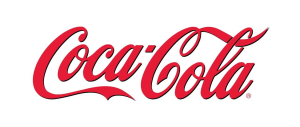Seduce your Customer: Lessons from Beyonce’s Successful Branding Strategies
3.08.2016Company: Amcham
Beyonce caught the world in a whirlwind when she “unexpectedly” released her new visual album Lemonade on HBO and later exclusively on Tidal. Unlike most album releases, there was close to no build up for promotion. Instead, enigmatic messages to watch Lemonade were posted on Instagram and Twitter few days prior, which confused fans with ambiguity. What exactly is Lemonade?
On April 23rd, admirers awaited before their TVs in anticipation and cried as they viewed not a usual music video but an hour long narrative film that spoke about race, feminism, and vulnerability. This surprise streaming of her second visual album ignited tremendous conversation on many social media channels. Queen Bey once again kept her throne by garnering much attention. Her success is evident in her increase of Youtube subscribers by 40%, Facebook page likes by 150% , and Wikipedia views by 9% (Billboard).

In fact, anything affiliated with the album spiked in sales. For example, lemonade sales at Uncle Matt’s Juice Company rose by about 20%, and even sales at Red Lobster, a seafood restaurant chain briefly mentioned in one of her songs “Formation,” increased by 33% (Complex). These undeniable results bring light not only to her album but also to her meticulous branding strategies. Every marketeer can take note of her innovative marketing success and learn from it. Here are a few steps she took:
- Post and Tweet just a week before the release. She made sure to keep the message as cryptic as possible, only announcing just enough information so the fans know what to do on that date. This way she left little lead time but enough to stir a frenzy over the topic.
- Create exclusivity. Lemonade was premiered on HBO once and streamed exclusively on Tidal the following day. This created a concentrated demand, which resulted in the raise of HBO ratings and Tidal subscribers. Exclusivity also makes fans feel special and appreciated; they feel closer to the artist, allowing the anticipation to naturally increase without special external promotion.
- Introduce high quality content. Her visual album was critically acclaimed by many as “her boldest, most ambitious, best album to date”(Entertainment Weekly). It touched on politics, race, feminism, and also her personal vulnerability and self knowledge. The piece was real and authentic, sharing intimate moments from the beginning of her career to present day. All these topics raised in the visual album stirred a lot of conversation and media coverage. Beyonce’s exact interpretation of Lemonade will forever remain a mystery, but the flavorful content sparked everyone’s interest to gossip about it.
Surprise album releases are becoming a common trick in the music industry. In fact, this is not Beyonce’s first time to use this tactic. With her first visual album in 2013, Beyoncé, she created a similar frenzy which, like Lemonade, caught everyone off guard. Within 3 days after the surprise, she sold 617,000 copies on iTunes Music Store and 1.3 million copies three weeks later (Forbes). Though it sounds like a risky strategy at first, this little-in-advance method has been exciting fans and in return, gathering enough momentum to make the album or any product a hit. Unlike traditional music promotions where people collect information about artists through posters, billboards, and websites, etc, fans now directly interact with the artists through various social media platforms and are delighted to hear about surprises first hand from artists’ posts and tweets. Through this surprise tactic, Beyonce also plays on the Pygmalion Effect. This is a psychological phenomenon that people tend to outperform when the expectations are high. As a marketing expert, Queen Bey predicted the incredibly high expectations resulting from teasing posts and short but heightened lead time. Thus, she over delivered Lemonade with high quality content, music, and visuals. This surpassed fan expectations exponentially and made the already-great album appear even greater and grander. These tiny but relevant psychological effects end up playing a huge role in the overall branding of a product. Of course, not every company or businessman has a fan basis as huge as Beyonce’s, but we can all learn from these tricks and utilize it to better strategize our marketing.

Tags: Finance | Media |









